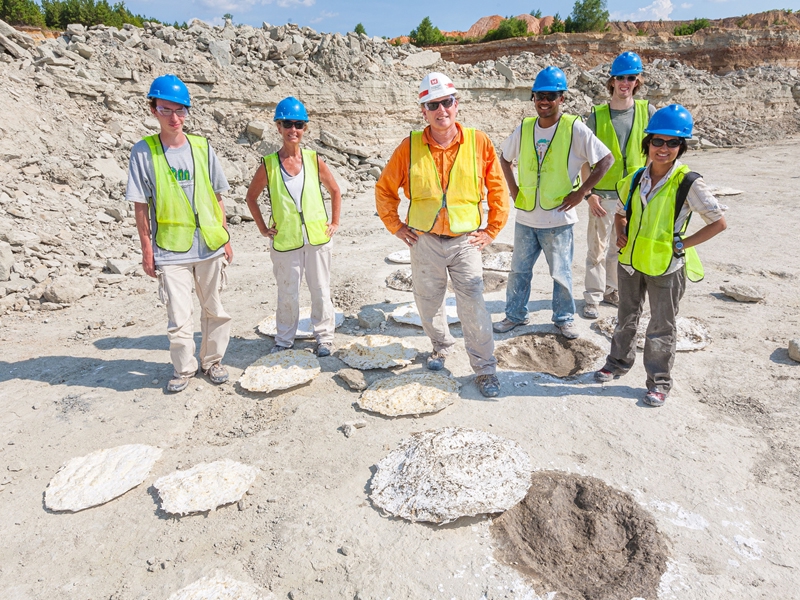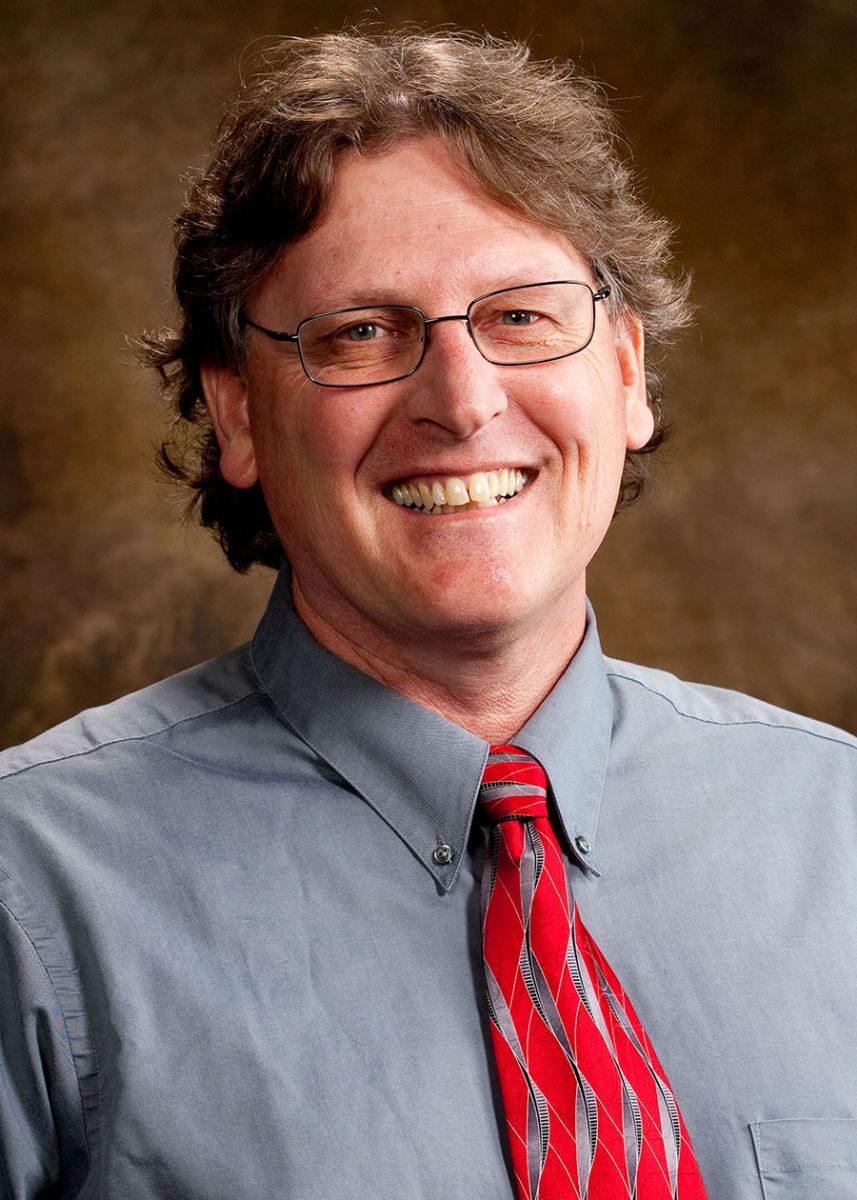
A University of Arkansas researcher is leading the charge to broaden participation and inclusion in the geosciences workforce.
Steve Boss, University Professor of environmental dynamics and sustainability in the Department of Geosciences, is one of the lead investigators on a $7 million grant from the National Science Foundation to the Geological Society of America. The grant, which will be distributed over five years, will enhance the society's On To the Future professional development and inclusion initiative.
"We are excited, honored and privileged to receive this substantial award from the National Science Foundation," said Boss. "The grant provides for greatly expanded support and opportunities for the diverse identities comprising the On To the Future scholars to aid their progress toward careers in the national geosciences workforce, an area of critical national need."
On To the Future, which celebrated its 10-year anniversary in 2023, has been instrumental in advancing inclusivity within the geosciences by supporting scholars from diverse and underrepresented backgrounds to attend GSA Connects, the society's flagship annual meeting. Through partial travel funding, mentorship, and networking opportunities, the On To the Future initiative helps scholars gain exposure to a wide range of geoscience research fields and career paths; teaches vital leadership skills; offers ongoing opportunities for community service and career development; and fosters a supportive network among participants.
"This effort is the culmination of over 21 years of my work to broaden participation and promote inclusive excellence in geosciences at the University of Arkansas and across the nation," said Boss. "The NSF award is an acknowledgment and validation of my creative pursuit to improve career pathways into the national geosciences workforce for the United States populace. Geosciences provides lucrative careers that are essential to the United States national security and those employed in geosciences careers are active participants in the nation's economy."
 Steve Boss |
Boss collaborated with the Geological Society of America, professor Julia Clarke at the University of Texas-Austin, professor Adam Papendieck at the University of New Mexico and consultant Kathy Ellins on the grant proposal.
"Scalability is the big question for most programs — how do we grow effectively with more impact on the discipline and success for the scholars?" said Clarke, the society's director of scientific inquiry and a principal investigator on the grant. "This new program powerfully builds on what we have learned from five years of work at the University of Texas with our HHMI-funded Geoscience Ambassadors program. It equally builds upon key learning and data from multiple NSF grants to GSA to build linkages with other professional societies and enhance programming."
With NSF's support, the Geological Society of America aims to expand the OTF initiative's reach by increasing career and leadership development activities to further diversify the geoscience workforce. The grant will provide higher travel stipends, extend the program to a 4-year model with evolving goals, and offer additional financial support for increased mentor involvement. To date, the initiative has supported over 900 scholars, with awards ranging from $200 to $1,000. The program engages students who are often the first in their families to attend college (74%), from underrepresented groups (47%), nontraditional students (37%) and veterans (9%), encompassing a wide spectrum of backgrounds and experiences.
The society's director of scientific integrity, Elizabeth Long, along with collaborators Boss, Julia Clarke of the Jackson School of Geosciences, University of Texas; Kathy Ellins, an independent consultant; and Adam Papendieck of the University of New Mexico led the successful grant proposal with crucial support from the Geological Society of America leaders, members and staff. This collective effort underscores society's commitment to fostering a geoscience community that reflects the diversity of the world it studies.
The OTF initiative's expansion aligns with the Geological Society of America's broader strategic goals of building and sustaining an inclusive, professional geoscience community.
About the Department of Geosciences: The Department of Geosciences traces its origin to 1873 when the first mineralogy course was offered at the University of Arkansas. Our faculty and students examine the processes that form and shape Earth's surface, the natural resources we use, how water and ecosystems are interconnected, variations in climate and paleoclimate, the use and development of geospatial methods, and the human geography of ethnicity, gender, class, social inequity, and religion. The department earned $2 million in research awards in FY 2020, and our students benefit from over $3 million in endowed scholarship funds contributed by generous alumni and friends of the department. To learn more about the Department of Geosciences please visit our website.
About the Geological Society of America: The Geological Society of America is a global professional society with a membership of more than 17,000 individuals in over 100 countries. The society serves as a leading voice for the geosciences, promoting the understanding of Earth's dynamic processes and fostering collaboration among scientists, educators, and policymakers.
Topics
Contacts
Andy Albertson, director of communications
Research and Economic Development
479-575-6111,